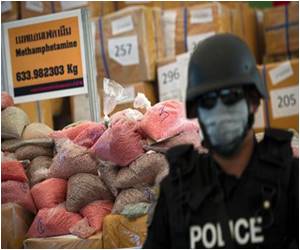
‘While prenatal methamphetamine exposure is strongly related to behavioral or emotional control issues, early adversities may be a strong determinant of behavioral outcomes.’
Tweet it Now
"In the first study of its kind, we followed children, who experienced prenatal methamphetamine exposure, up to the age of 7.5 years and found that adversities, such as poverty and continued drug abuse by a parent, contributed to behavioral and emotional control issues," said Lynne M. Smith, MD, an LA BioMed lead researcher and corresponding author of the study. "While additional study is needed, these findings indicate that providing a supportive home life for children with prenatal methamphetamine exposure would reduce their behavioral and emotional control issues." The study is a follow-up to the Infant Development, Environment and Lifestyle (IDEAL) study, which is a prospective, multi-center, longitudinal study of children exposed to methamphetamine in the womb. It is designed to address some of the limitations of earlier studies.
The IDEAL study enrolled children from Los Angeles; Des Moines, IA; Tulsa, OK, and Honolulu, HI, who had been exposed to methamphetamine in utero. Previous reports from the IDEAL study documented the outcomes up to age 5 and found emotional issues and attention deficit hyperactivity disorders in the children with prenatal methamphetamine exposure.
The new study surveyed 290 children enrolled in IDEAL and found a strong relation between prenatal methamphetamine exposure and rule-breaking and aggressive behavior. It also found a strong relation between adversities in the home and rule-breaking and aggressive behavior. Among the adverse conditions considered were maternal substance abuse, extreme poverty, changes in the primary caregiver, sexual abuse of the caregiver and maternal depression.
The researchers concluded that while prenatal methamphetamine exposure is strongly related to behavioral and emotional control issues, early adversities may be a strong determinant of behavioral outcomes. With the current study only following children up to age 7.5 years, the researchers said longer term studies will be needed for a more complete understanding of the developmental, emotional and social outcomes for children with prenatal methamphetamine exposure.
Advertisement










